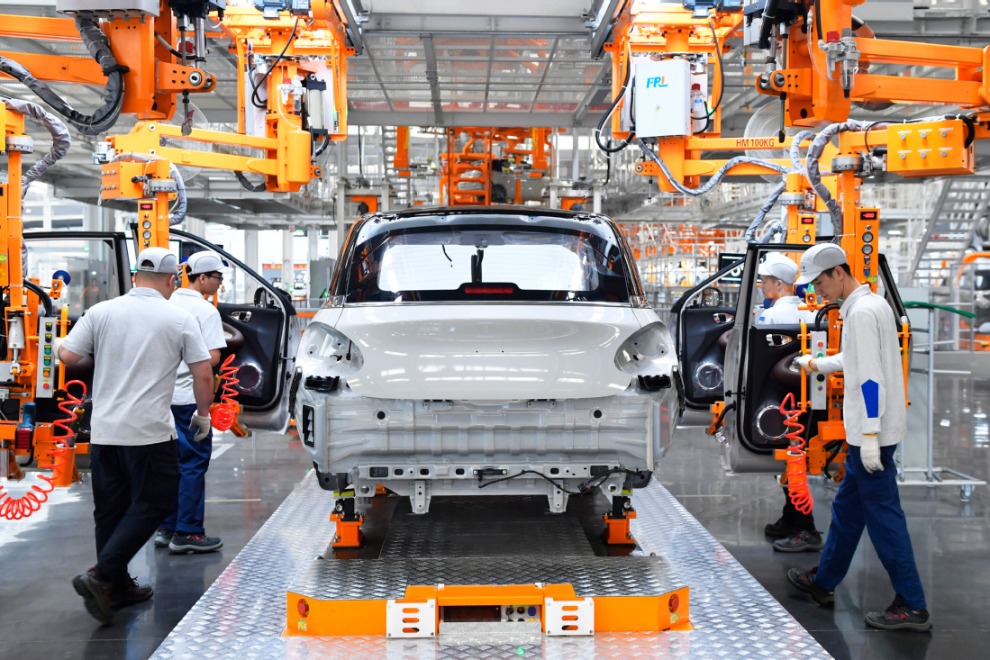China”s rapid development of new infrastructure has emerged as a key driver of power consumption, fueling substantial growth in sectors such as 5G, artificial intelligence and electric vehicles, said industry experts.
In recent years, the swift advancement and application of new infrastructure, including 5G networks, big data, cloud computing, AI and the industrial internet, have significantly raised electricity usage in these sectors, said the China Electricity Council, a trade body of power producers.
Electricity consumption for internet data services, including big data processing, cloud storage, cloud computing and cloud processing based on internet technology, saw an average annual growth rate of 28 percent from 2018 to 2023, and it further increased 33 percent during the first half of the year, according to figures recently released by the council.
Liu Yongdong, deputy secretary-general of the council, said a key factor behind China’s increasing power consumption is the country’s rapid economic expansion, which is driving the higher energy demand.
Industrial production, infrastructure projects and urbanization have also contributed significantly to growing electricity consumption, he said.
Wang Lining, director of the oil market department of the Economics and Technology Research Institute of China National Petroleum Corp, said that as China advances technologically, the proliferation of digital technologies, data centers and electric vehicles has substantially contributed to the rising power demand.
China is a global manufacturing hub, with industries such as steel, cement and electronics requiring a significant amount of energy. The expansion and modernization of these industries have led to increased power usage, Wang said.
The push for electric vehicles to combat pollution and dependence on fossil fuels has also led to a surge in electricity demand for charging infrastructure and EV manufacturing, he added.
Figures released by the council show that the rapid construction and development of charging stations for new energy vehicles have raised power consumption in the charging and battery swapping service industry, which saw an average annual growth rate of 79.4 percent during the first half of the year.
The growth rate of electricity consumption in this sector continued increasing and remained high at 63.7 percent during the first half, the China Electricity Council said.
Jiang Debin, deputy director of the council’s statistics and data center, said, “The rapid expansion of these cutting-edge technologies is transforming China’s economic landscape, driving both innovation and the demand for energy.”
With a series of macroeconomic policies gradually taking effect, further stimulating domestic economy, China’s macro economy during the second half of the year is expected to maintain stable growth, which will also support the steady growth of the demand for power consumption, Jiang added.
Data from the Ministry of Industry and Information Technology shows that as of the end of June, the total number of 5G base stations in China reached 3.92 million. The stations are expected to consume 92.8 billion kilowatt-hours of electricity annually, an increase of 23.4 billion kWh, up 33.7 percent compared with the same period last year.
In the first half of 2024, electricity consumption in the high-tech and equipment manufacturing industries increased 13.1 percent year-on-year, outpacing the average growth rate of the manufacturing sector by 6.2 percentage points, which indicates a continuous trend of transformation and upgrading in manufacturing.
It is expected that total electricity consumption, which is a key barometer of economic activity, will grow by approximately 6.5 percent year-on-year for the whole of 2024. The year-on-year growth rate for total electricity consumption in the second half of the year is expected to be around 5 percent, according to the council.

